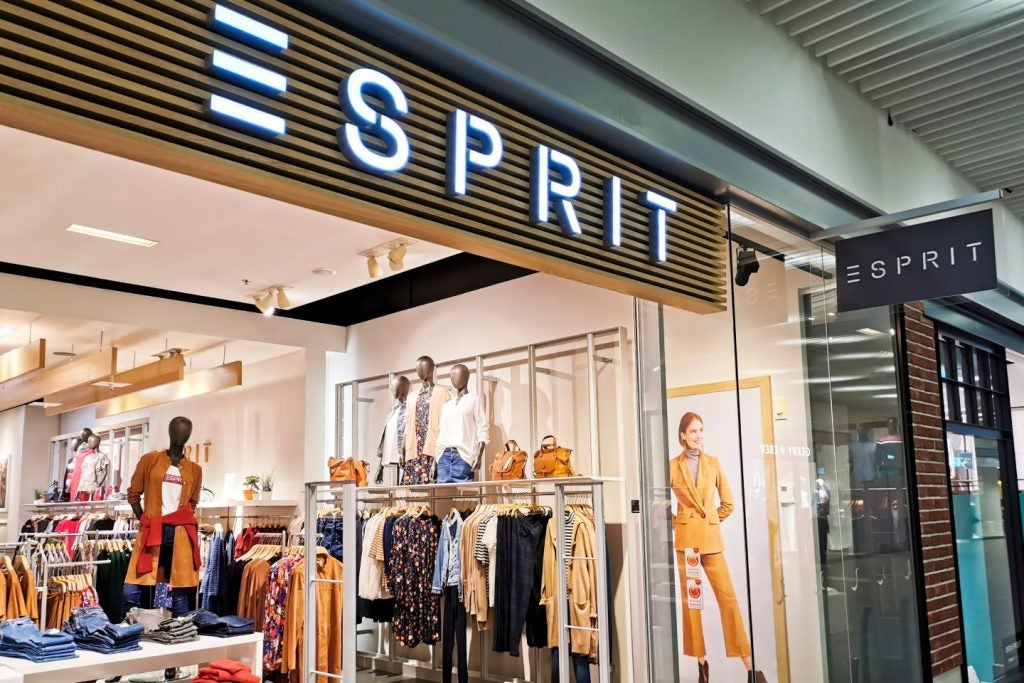Hong Kong-listed Esprit announced it was putting Esprit Europe into administration in Germany, along with several other subsidiaries, which will allow it to reorganise both its finances and its business and make full use of the tools provided by German insolvency law.
The news comes after reports emerged Esprit was desperately seeking investment to avert a collapse of the European business.
Esprit told the Wall Street Journal it is engaged in discussions with an “international private-equity firm” regarding potential investments. The potential investor has reportedly expressed interest in submitting a “non-legally binding framework memorandum of understanding” as a precursor to a possible partnership.
Then yesterday (15 May) Esprit announced it was filing for self-administration in Europe.
It is the second time Esprit has filed for administration for its German subsidiaries in four years.
Esprit said in recent years the subsidiaries “have been battling extremely high costs due to inflation, interest rates and energy prices, the after-effects of the coronavirus pandemic and the consequences of international conflicts, all of which have weakened the Subsidiaries’ financial situation.”
“The situation has been exacerbated by the burden of legacy costs, such as high rents of long-term lease for the unsuitably sized stores, labour costs of overly bloated workforce and expenses related to an overcapacity logistic setup. All of these made it unviable financially to continue the business as it is currently structured in Germany.”
At the end of last year, Esprit issued a profit warning after it incurred a net loss of HK$1.9bn ($243m) for the year ending 31 December 2023.
The company said the board of directors or each general partner of each of the subsidiary companies reported to the board it was now cash flow insolvent or headed that way. The group said it felt the best option was to proceed with self-administration proceeding filings for each subsidiary.
“The company has undertaken a comprehensive transformation of the subsidiaries and has developed the self-administration strategy which allows the company to reorganise its finances and business in Europe,” Esprit said.
“It provides necessary flexibility and agility to effectively pursue the ongoing transformation program which is favourable to the long-term and sustainable development of the company.”
Esprit's day-to-day business will continue at the subsidiary companies and Esprit said this would allow preservation of the value of the business, protect jobs and enhance the chances of a successful restructuring.
“Further, self-administration allows the management of each subsidiary to maintain direct communication with stakeholders, such as employees, suppliers, customers and creditors. This transparent and open dialogue can help build trust, facilitate negotiations and improve the prospects of obtaining support for the restructuring efforts.”
“The self-administration proceedings have been initiated with the primary objective of not only restoring the economic stability of the company but also retaining the strength of the Esprit brand name. By taking proactive steps to address the disproportionate operating costs and streamline the business, the company demonstrates its commitment to maintaining a strong and competitive brand presence in the market.”









